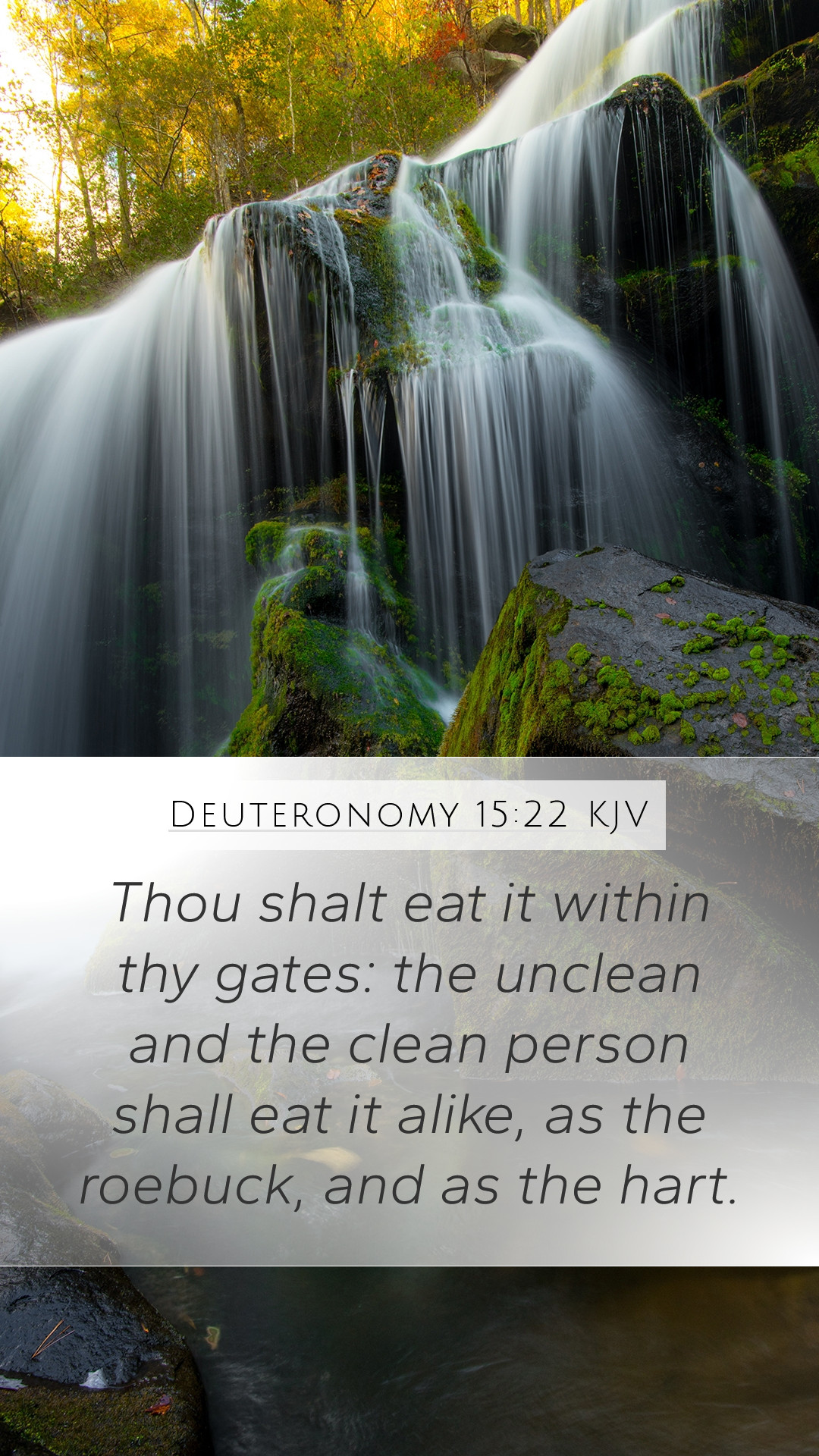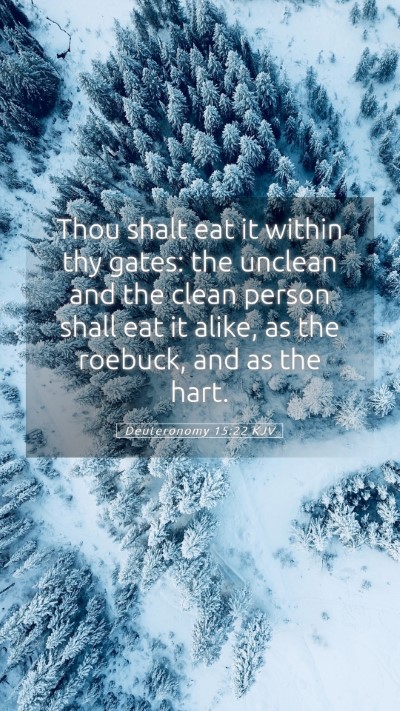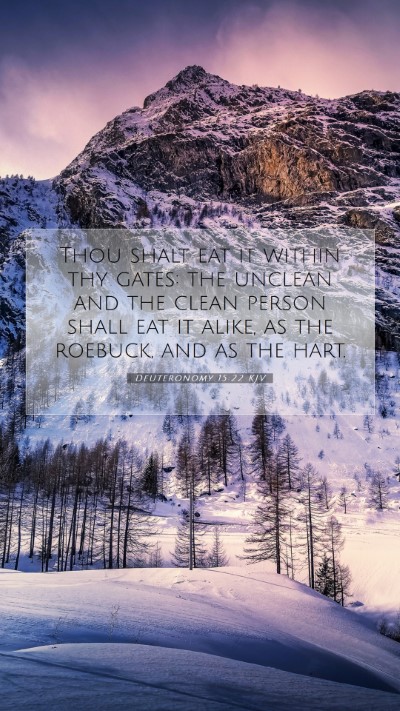Understanding Deuteronomy 15:22
In Deuteronomy 15:22, the text states: "You may eat within your gates the unclean and the clean alike, as the gazelle and the deer." This verse speaks about dietary regulations within the context of the Mosaic Law, particularly addressing provisions for the Israelites regarding the consumption of animals.
Bible Verse Meanings
In examining this verse, we delve into its significance for the followers of the Mosaic Law. Commentators emphasize that this instruction allows for a more inclusive dietary practice, acknowledging both clean and unclean animals, which hints at a practical approach to daily living and the challenges posed by strict ceremonial laws.
Bible Verse Interpretations
- Matthew Henry: Henry articulates that this verse reflects God's provision for His people, offering leniency amid the rules of clean and unclean. The acknowledgment of the gazelle and deer suggests that God's grace is extended to various aspects of life.
- Albert Barnes: Barnes views this verse as an illustration of God's desire for His people to be free from unnecessary burdens. It allows them not to be overly scrupulous about clean and unclean animals when it comes to daily needs.
- Adam Clarke: Clarke argues that this reflects a broader theme in the Law, where God accommodates human limitations and practical realities while still calling for a dedicated and holy living.
Bible Verse Understanding
The greater context of Deuteronomy chapter 15 involves themes of release and generosity. By permitting the consumption of both clean and unclean acts, the verse emphasizes God’s liberality and care for human practicality, asserting that the community's needs come first.
Bible Verse Explanations
This command also serves as a precursor to later teachings found in the New Testament, where the distinction between clean and unclean is re-evaluated. Such interpretations can lead to fruitful discussions in bible study groups, particularly in exploring how believers today can apply these lessons.
Scripture Analysis
In-depth analysis of this verse may include recognizing its place within the broader scope of biblical dietary laws and how they foreshadow the eventual lifting of such restrictions in Acts 10:15 where Peter receives a vision about clean and unclean animals. This significance unveils layers to understanding Scripture.
Historical Context
Understanding the historical context of this verse is crucial as the Israelites navigated life in the wilderness and transitioned to a settled life in the land. Such transitions often come with evolving interpretations and applications of God’s laws.
Application to Daily Life
The application of this verse to modern life points to the necessity of balancing tradition with practicality and suggests that God cares about our daily lives and needs, encouraging believers to be adaptable within their faith practices.
Additional Bible Cross References
- Leviticus 11:2-8 – Details the laws of clean and unclean animals.
- Acts 10:15 – Discusses the vision that redefines clean and unclean in the context of the New Covenant.
- Mark 7:18-19 – Jesus teaches that what enters a person's body does not defile them, emphasizing the heart over ritual cleanliness.
Conclusion
This exploration of Deuteronomy 15:22 offers rich insights into how we may interpret and apply scripture in our lives today. By understanding this verse through the lens of historical and theological commentary, one can appreciate both its immediate context and broader implications within the faith community.


